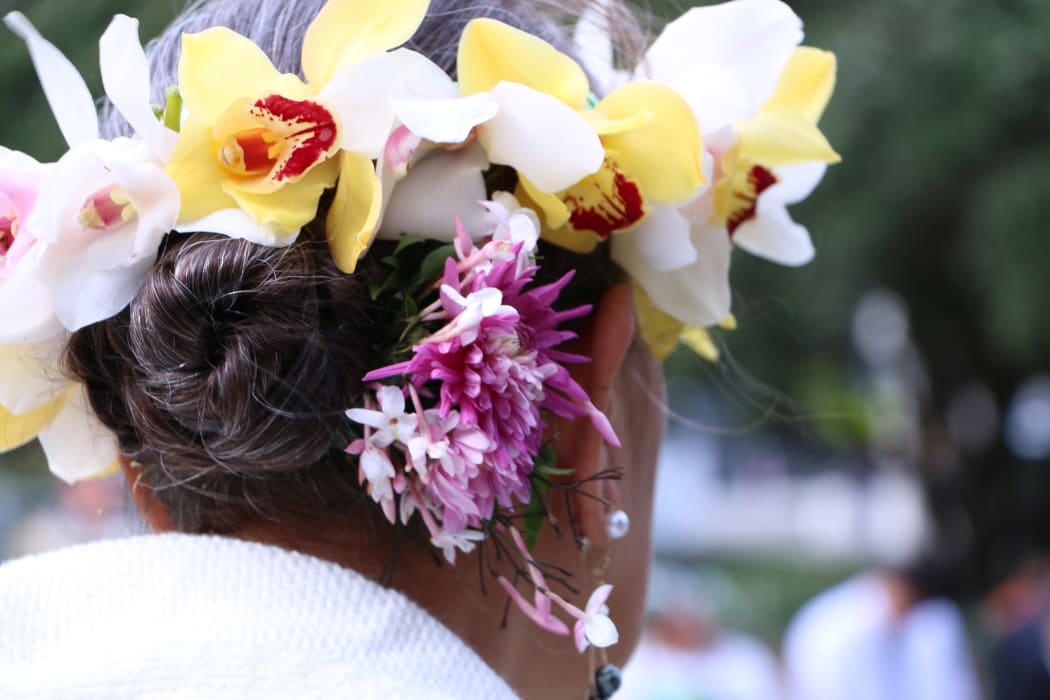A practice parliament last week in the Cook Islands was part of push to get female representation in the country's parliament up to 50 percent by 2030.
About 70 women took part in the events which coincided with International Women's Day on March 8th.
Parliamentary Speaker, Nikki Rattle, says there are women in the community who want to be involved but don't know how.
Miss Rattle told Don Wiseman the exercise was successful.

Photo: RNZ / Daniela Maoate-Cox
Transcript
NIKKI RATTLE: We were able to again bring women from the outer islands as well as the women here in Rarotonga. But we also included any leadership roles either in the civil society, in business sector, private sector and of course with increasing the women in parliament. And I think we did succeed in increasing the awareness of women and the importance of the voice of women in parliament as well as if they aspire to take up leadership roles in other areas of our society.
DON WISEMAN: When you look at the cook islands there has always been a fairly strong representation of women across all of those. Different leadership sectors hasn't there?
NR: In 2015 we celebrated our 50th year of self-governing and the most women we have had in parliament have been four women out of twenty-four members of parliament. And I am a speaker as a non-member of parliament. In 2015 globally we were to reach 30 percent of women in parliament and we didn't do that and now the theme for this year, is planet 50/50 by 2030. So I think it is quite obvious that you do need the voice of women to be better. Increase the representation of the voice of women.
DW: What are the sorts of things that you did in this practice parliament, that you think are going to encourage more women to stand and get elected?
NR: I think women don't really understand what goes on in parliament, what happens when you become a member of parliament. As some of the current members of parliament have said that you just go into parliament and you don't really know what your responsibilities are before you get in. And I think in a way we are being proactive. We are bringing women together and we are saying alright these are the procedures of parliament and this is the business of parliament and why you were elected to come into parliament to speak on behalf of the people who vote you. And we looked at the standing orders of parliament. We looked at the constitution and look at the importance of parliamentarians promoting policies that promote gender equality and looking at the budget engendering the budget and making sure that the policies the government puts in place are gender friendly. And we did that for two days with our support team from UNDP. And then on the third day we came and ran a practice parliament. Because in our last experience two years ago many women said if I just don't have the confidence to stand for parliament the system doesn't allow me to do that and it is very expensive to stand and part of this is to encourage women to vote for women because half the voters out there are women and understanding that this is something that women can do. So I felt that the last time when women were in parliament and sitting in the chamber practicing to be a member of parliament, it does something for you. It changes the way you think about your ability to do it and when you actually are sitting in the chamber you realise the responsibilities of a member of parliament that it is really not something to be scared about.
To embed this content on your own webpage, cut and paste the following:
See terms of use.


